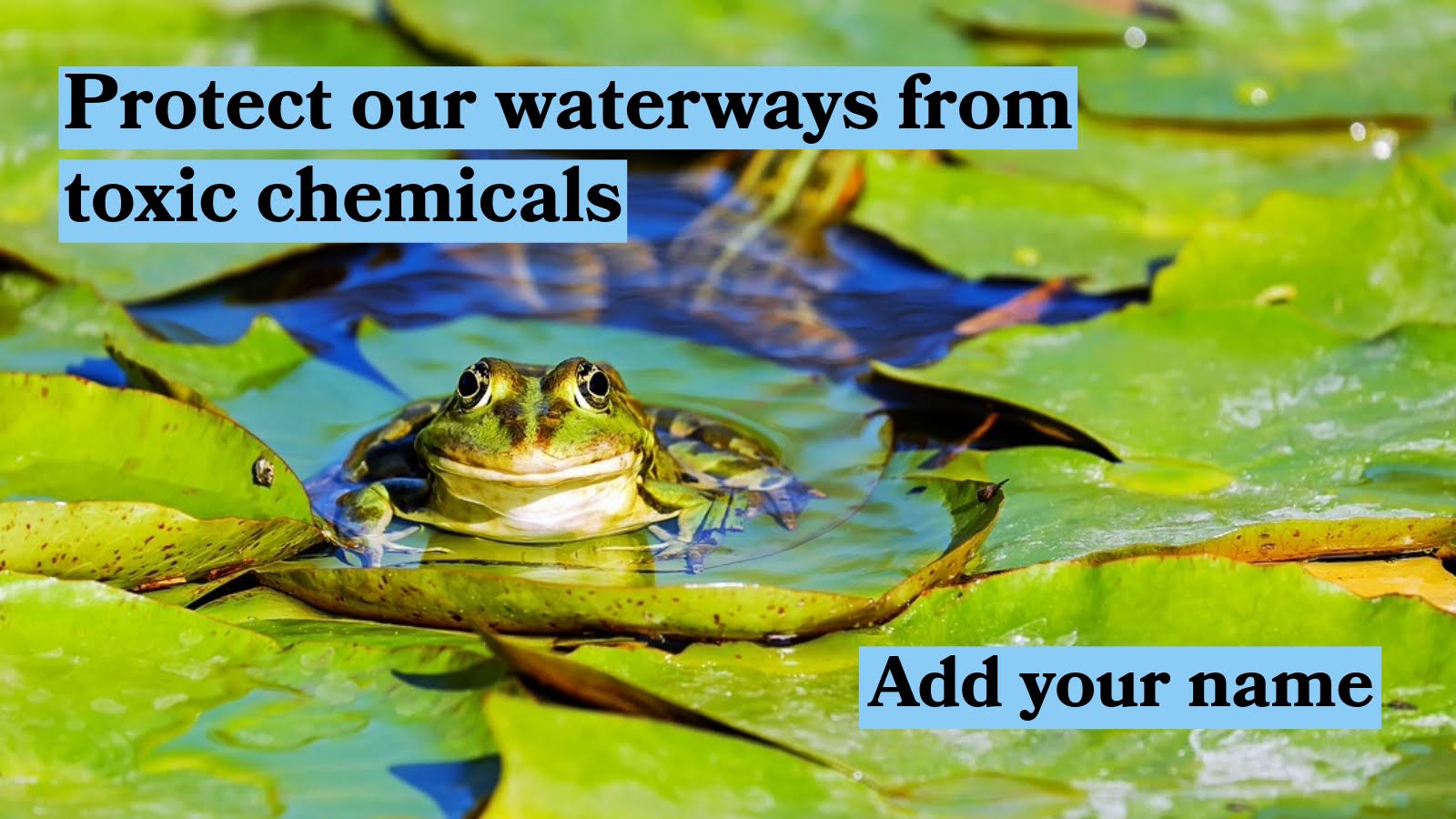

John,
The dangers posed by the herbicide known as atrazine have long been studied -- it's been linked to birth defects, cancer and reproductive issues, and can devastate contaminated ecosystems.1
It's been nearly 20 years since the E.U. effectively banned atrazine due to environmental and health concerns.2
But in the U.S., the very same herbicide is spread across 75 million acres of U.S. cropland annually.3
Tell the EPA: It's past time to stop using this toxic herbicide.
A common weed-killer, atrazine has been shown to interfere with hormone production. Its effects are especially devastating on frogs, with one study finding that 75% of male frogs exposed to the chemical were "chemically castrated" and incapable of reproducing.4
Frogs aren't the only victims. Other aquatic animals including fish and molluscs have experienced die-offs after their ecosystems were contaminated with atrazine.5
Keep our aquatic ecosystems safe: Urge EPA Administrator Lee Zeldin to phase out atrazine.
Because it is so widely used -- being spread across millions of acres of crops including corn and sugar cane -- atrazine has become the most commonly detected pesticide in water supplies.6
Forty million Americans drink water contaminated with a chemical banned in more than 60 countries -- this is not okay.7
When judging the health of an ecosystem, scientists often start with the frogs. If the frogs are suffering, the whole environment is in trouble.8 And as atrazine continues to wreak havoc on frog health, we should be taking note.
Tell the EPA: Take a cue from the frogs and start phasing out atrazine today.
Thank you,
Ellen Montgomery
1. Hiroko Tabuchi, "Kennedy's Allies Against Pesticides: Environmentalists, Moms and Manly Men," The New York Times, May 20, 2025.
2. Hiroko Tabuchi, "Kennedy's Allies Against Pesticides: Environmentalists, Moms and Manly Men," The New York Times, May 20, 2025.
3. Hiroko Tabuchi, "Kennedy's Allies Against Pesticides: Environmentalists, Moms and Manly Men," The New York Times, May 20, 2025.
4. Robert Sanders, "Pesticide atrazine can turn male frogs into females," UC Berkeley News, March 1, 2010.
5. Wesley de Lima Oliveira, Thais Fernandes Mendonça Mota, et al, "Does the atrazine increase animal mortality: Unraveling through a meta-analytic study," Science of the Total Environment, November 15, 2024.
6. Knvul Sheikh, "What a White House Report Says (and Doesn't Say) About Pesticides and Health," The New York Times, May 22, 2025.
7. Hiroko Tabuchi, "Kennedy's Allies Against Pesticides: Environmentalists, Moms and Manly Men," The New York Times, May 20, 2025.
8. "What Are Frogs Worth?", American Museum of Natural History, last accessed May 30, 2025.
Donate today. A cleaner, greener future is within our reach. Your donation today can help us bring the vision we share a little closer to reality.
Environment Colorado, Inc.
1543 Wazee St., Suite 400, Denver, CO 80202, (303) 573-3871
Member questions or requests call 1-800-401-6511.
Facebook | Twitter

If you want us to stop sending you email then follow this link -- Unsubscribe.
